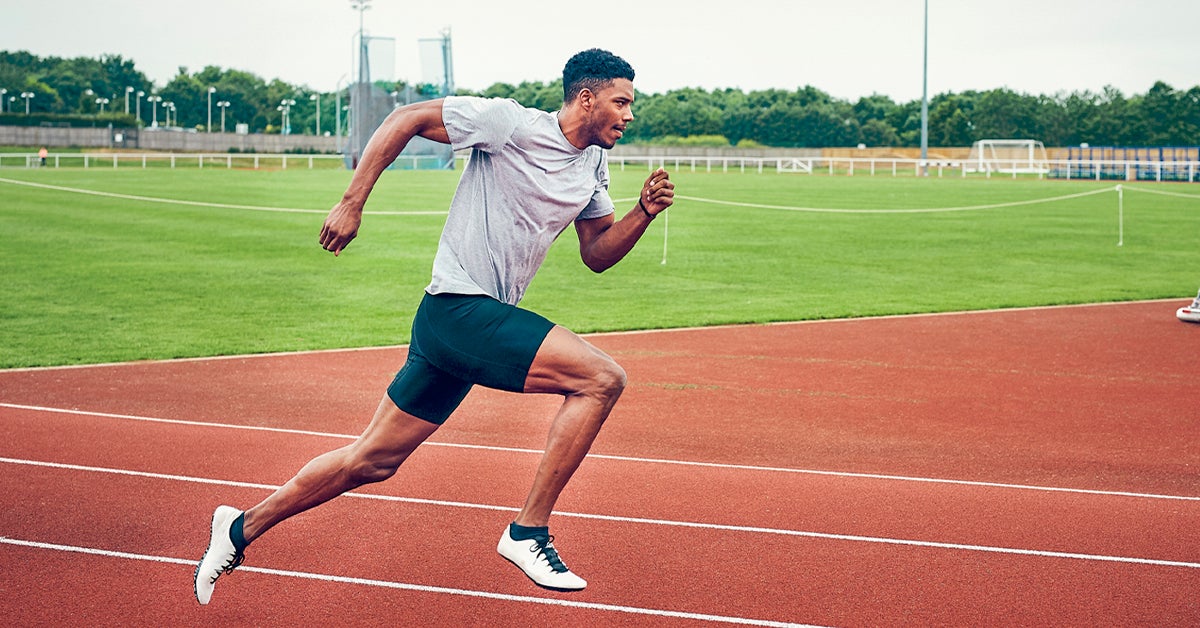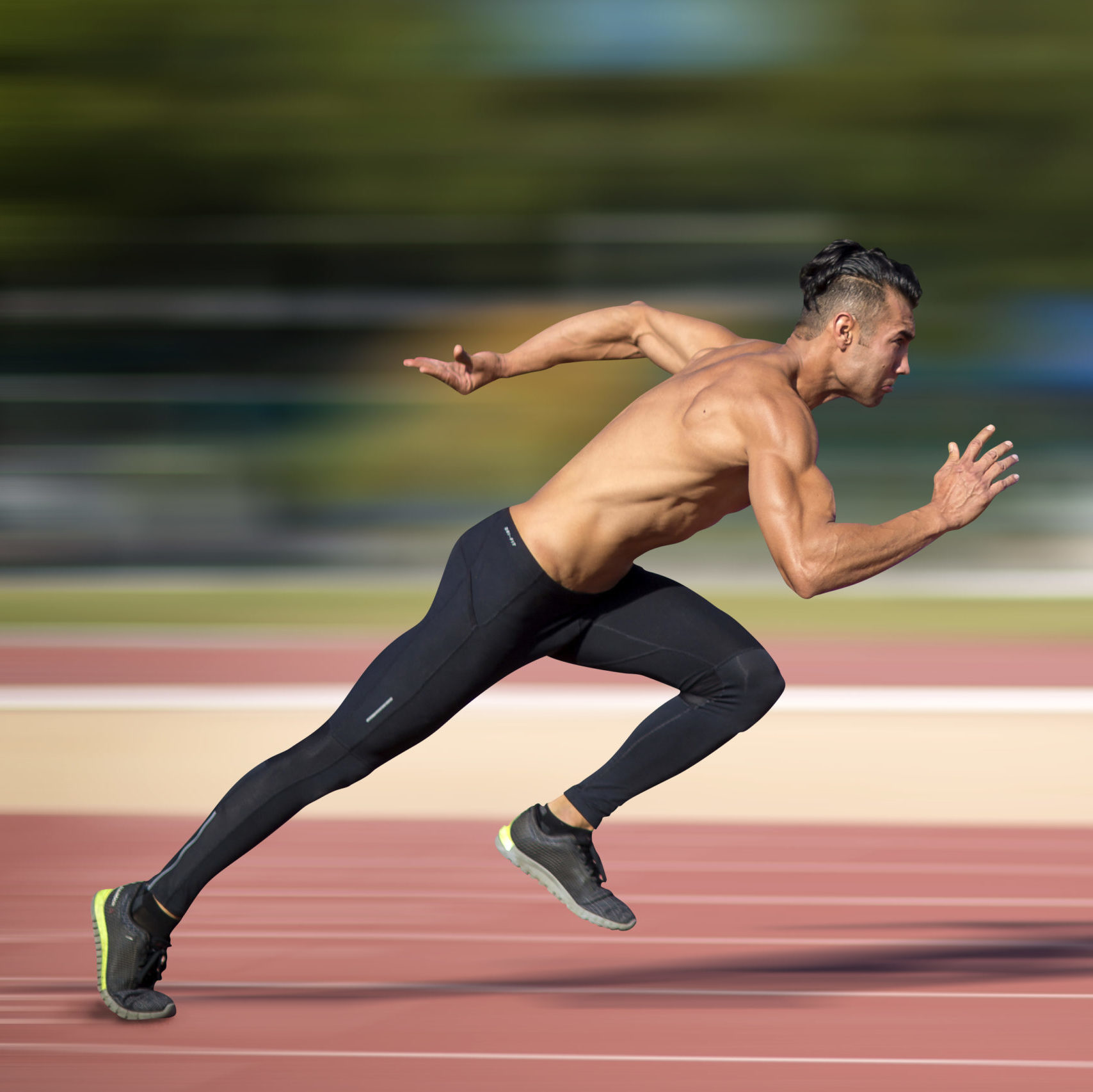Many folks, you know, might find themselves wondering about the beginnings of running. It’s a pretty natural thing to do, right? You see people jogging in parks, racing on tracks, or just sprinting for the bus, and it seems like it’s always been a part of what we do. But did someone, like, come up with it one day? Was there a moment when running, as we know it, just popped into existence? The answer, actually, is a little more interesting than you might guess.
It turns out, running isn't something that was ever truly "invented" by a single person or even a group of people at a particular time. Think of it more like a skill that grew and changed over a really, really long stretch of time, millions of years even. It’s deeply woven into the fabric of who we are as human beings, something our bodies were built to do, almost instinctively.
So, if it wasn't invented, what's the real tale of how we came to be such good runners? We’re going to take a look at how this basic way of moving went from a necessary action for staying alive to the popular pastime and serious athletic contest it is today. We’ll also explore its very old beginnings, you know, across different cultures and periods of time.
Table of Contents
- Did Someone Invent Running?
- How Did Running Evolve for Survival?
- Early Human Movement - When Was Running Invented by Our Ancestors?
- From Staying Alive to Sporting Glory - The Evolution of Running
- Ancient Cultures and the Origins of Running
- The First Big Races - When Was Running Invented as a Sport?
- Running in the Middle Ages and Beyond
- The Modern Popularity of Running - When Was Running Invented for Fun?
Did Someone Invent Running?
A lot of people, you know, might picture a single moment, maybe a clever person, coming up with the idea of running. It's a fun thought, isn't it? Perhaps a Mr. Thomas Running, as some folks might jokingly suggest, started the whole thing. But the truth is, that's not how it happened at all. Running, in its most basic form, is a way our bodies move, a natural ability we possess, just like walking or jumping. It’s not a thing you can point to and say, "That's when it began because of this one person."
It’s more like a skill that just grew with us, rather. Our human story is really tied to this simple action. We’ve been moving on two legs for a very, very long time, and that ability to move quickly and cover ground is a part of our deep past. It’s less about a moment of creation and more about a very slow, gradual change over countless generations, you know?
How Did Running Evolve for Survival?
If running wasn't invented, then how did it become such a big deal for us? Well, to put it simply, it was a matter of staying alive. Our very early ancestors, going back perhaps 4.5 million years, developed the knack for walking upright on two legs. This upright stance was, in a way, a big step, and from there, the ability to move faster, to run, became incredibly useful.
Picture this: our early human relatives, maybe two million years ago, needed to find food. They also needed to avoid becoming food for other creatures. Running was their main tool, their natural edge, in these situations. It was how they chased down animals for meals, and it was how they got away from dangerous beasts. It was also a way, you know, to travel long distances across open lands, moving from one place to another to find resources. This need for survival really shaped our bodies to be good at running.
So, in essence, running wasn't a choice for leisure back then; it was a necessary part of daily existence. It was about making it through another day, about feeding the family, and about keeping safe from harm. This fundamental connection to survival, you know, is a big part of why running feels so natural to us even now.
Early Human Movement - When Was Running Invented by Our Ancestors?
To really get a sense of when running, you know, became a distinct way of moving for humans, we have to look back to our earliest relatives. Fossil discoveries, for example, show us bipedal apes that were around even before Neanderthals. These ancient beings were already moving about on two legs, a crucial step toward running.
It’s believed that the specific kind of running we do, with its particular way of moving our bodies, truly started to take shape around 4.5 million years ago. This was when our ancestors began to perfect the upright walk, which then set the stage for faster movement. Over time, the ability to run gave these early humans a clear advantage, especially when they were hunting animals. They could, basically, pursue their prey over long distances, wearing them out until they could get close enough. This kind of persistence hunting, you know, was a game-changer for getting food.
So, while no one "invented" running, our ancestors certainly developed and refined it out of sheer necessity. It was a skill that grew with them, making them very effective at living in their world. It really is a story of evolution, you see, rather than a moment of invention.
From Staying Alive to Sporting Glory - The Evolution of Running
As human societies began to grow and change, running’s purpose started to shift too. It wasn't just about survival anymore. Over many, many centuries, this basic way of moving became a part of human culture in different ways. It was used, for example, in religious ceremonies, perhaps as a way to honor gods or connect with something greater. It also became a vital part of military training, helping soldiers stay fit and move quickly during conflicts.
Then, slowly but surely, running also began to transform into something competitive. People started to race each other, just for the thrill of it, or to see who was the quickest. This transition, you know, from a simple survival tool to a recreational activity and a serious contest, is a fascinating part of its story. It shows how something so fundamental can take on new meanings as our lives become more complex.
Ancient Cultures and the Origins of Running
When we talk about the formal beginnings of running as a sport, we often look to ancient civilizations. Places like ancient Greece, Egypt, and Persia, you know, played a big part in giving running a more organized structure. These cultures started to see running not just as a practical skill but as a way to test strength, speed, and endurance.
The ancient Greeks, in particular, are well-known for their love of athletic contests. They held games where running was a central event, celebrating the human body and its capabilities. This was a time when running began to be recognized as a symbol of human excellence and a significant part of community life. It was, basically, a step towards the formalized races we see today.
The First Big Races - When Was Running Invented as a Sport?
The idea of running as a sport, you know, really took off with the ancient Olympic Games in Greece. These games, which started way back in 776 BC, were a huge deal. Running races were at the very heart of these early Olympics. The "stadion" race, a sprint of about 200 yards, was, actually, the first and only event for many years. This marked a very clear point where running moved from just being a practical action to a celebrated athletic event.
And what about the marathon? That's a story with its own roots in ancient Greece, too. The tale of a messenger running from the battle of Marathon to Athens to deliver news of victory, then collapsing, is a famous one. While the historical details might be a little fuzzy, this story really inspired the modern marathon race. So, in a way, the idea of the marathon was certainly "invented" or, rather, inspired by a specific historical event, though the act of running itself was already ancient. This shows how, you know, running became tied to stories and national pride.
Running in the Middle Ages and Beyond
After the ancient games faded, running didn't disappear, but its role changed a bit. During the Middle Ages, for example, running still had practical uses, like for messengers or in military exercises. But the organized, large-scale sporting events of ancient times were less common. People still ran for fun, or as part of local contests, but it wasn't quite the global phenomenon it is today.
Over the centuries, though, as societies became more settled and people had more time for leisure, running started to regain its place as a recreational activity and a competitive pursuit. It slowly but surely made its way back into the public eye, you know, becoming a beloved activity for many. This gradual return to prominence shows how deeply ingrained running is in our human experience.
The Modern Popularity of Running - When Was Running Invented for Fun?
In more recent times, running has truly blossomed into a global passion. It's not just for elite athletes anymore; it's something millions of people do for their health, for stress relief, or just for the sheer joy of it. This shift, you know, from a survival tool to a widespread hobby and fitness activity, has been quite remarkable.
People run marathons, half-marathons, and shorter races all over the world. They join running clubs, track their progress with fancy gadgets, and share their running stories online. It’s become a way to connect with others, to challenge oneself, and to simply feel good. The simple act of putting one foot in front of the other, moving quickly, has, in some respects, transformed into a powerful symbol of personal well-being and community spirit. It's pretty cool, if you think about it.
So, while running itself wasn't "invented," its modern form, as a widely enjoyed pastime and a structured sport, has certainly taken shape over time, becoming what it is today through cultural shifts and human desire for movement and competition. It's a continuous story, you know, that keeps on going.
To sum things up, running isn't something a single person came up with; it's a natural human ability that grew with us over millions of years, starting as a way to stay alive for our very early ancestors. Over time, it changed from a necessary survival skill, like hunting and escaping danger, to a significant part of human culture, used in ceremonies and military training. Ancient civilizations, especially the Greeks, really helped turn it into a formal sport with events like the first Olympic Games and the inspiration for the marathon. In recent history, running has become a hugely popular activity for health, fun, and competition worldwide, showing its deep connection to human movement and spirit.
Related Resources:



Detail Author:
- Name : Grover Kub MD
- Username : considine.jamar
- Email : peffertz@hotmail.com
- Birthdate : 1970-10-23
- Address : 28727 Cristian Forges South Tiamouth, TX 25313
- Phone : +1 (949) 363-0603
- Company : McClure Ltd
- Job : Photoengraving Machine Operator
- Bio : Facere sint quia corporis officia. Maxime quis illum voluptas aut magnam et natus hic. Earum quisquam ex corrupti ea.
Socials
tiktok:
- url : https://tiktok.com/@mustafa_xx
- username : mustafa_xx
- bio : Ipsam labore incidunt tempore accusamus non.
- followers : 4600
- following : 1593
twitter:
- url : https://twitter.com/mustafa5899
- username : mustafa5899
- bio : Quo omnis magnam ad at dolorem. Voluptas non harum labore sed explicabo adipisci. Est assumenda sequi maiores deleniti est labore.
- followers : 280
- following : 2986